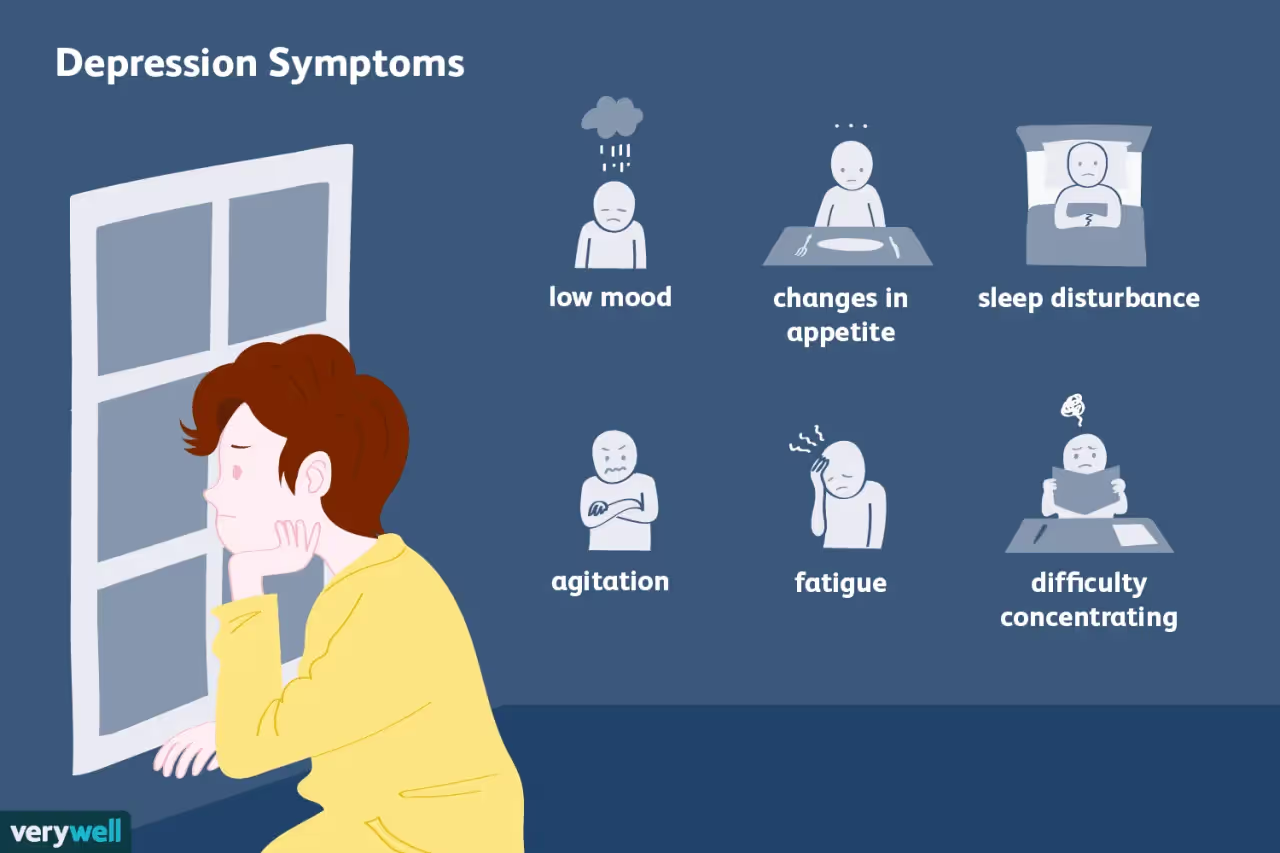Depression is one of the most commonly diagnosed mental disorders in the world.It is talked about so often in schools, movies, TV shows, on Instagram and...

Depression is one of the most commonly diagnosed mental disorders in the world.
It is talked about so often in schools, movies, TV shows, on Instagram and TikTok, and just about anywhere else you can think about.
This is a good thing in a lot of ways because it helps destigmatize mental health.
One of the inevitable drawbacks of making mental health topics widespread, however, is the instant increase in reported cases that follows close behind.
Does this mean that depression is more acceptable so more people feel comfortable getting help?
Or does it mean that more people think they have it because they heard incomplete information?
Or, do mental health crazes make people feel important, cool, and noticed (as is often the case with adolescents)?
The reality is, all of the above.
The more popular a mental health topic becomes the more people seem to suddenly have it.
Bulimia, anorexia, self-harm, and most recently, gender dysphoria, are some examples of mental health diagnoses that skyrocketed shortly after gaining widespread attention and then dropped significantly when it was no longer in vogue.
This is not to downplay the severity of these situations, it is only intended to demonstrate that it can be difficult to assess how common mental health disorders are once it breaks the popularity barrier.
Depression is no different.
This is why today will be dedicated to defining depression and learning how depression impacts mental health.
What better place to start defining depression than the diagnostic manual itself?
Now, you most likely know that depression involves deep feelings of sadness that can lead to self-harm and potentially suicidal thoughts.
But, does all depression lead to self-harm and suicidal ideation?
And, if you are sad, does that automatically mean that you're depressed?
The short answer to all these questions is no.
A lot of people suffering from depression never self-harm or have thoughts of suicide.
And, just because you are sad, does not mean you are depressed.
The diagnostic manual distinguishes depression from sadness by both time and impact on areas of functioning.
When defining depression time frame means a lot.
Major Depressive Disorder, for instance, requires a minimum of 2 weeks in which the individual feels empty, sad, hopeless, or a loss of pleasure in almost all activities nearly every day for most of the day.
Other symptoms associated with defining depression include a negative impact on sleep, and concentration, feelings of inappropriate guilt or worthlessness, fatigue, and significant weight loss or loss of appetite.
If you or someone you know is exhibiting these symptoms then you may be suffering from a major depressive disorder.
Okay, so this is what it looks like, what does depression not look like?
The devil is in the details.
Let's say that you received some bad news and your entire mood has dropped.
You don't want to see anyone, you don't want to do anything at all, you feel exhausted and just want to sleep.
This goes on for a couple of days and your friends start to notice.
You aren't returning calls, or going outside, you're barely eating and your sleep schedule is all over the place.
Does this mean you have Major Depressive Disorder? Are you just sad? What's the difference?
Well let's see: lack of interest in activities, the mood has dropped, fatigue and sleep are impacting you, and your appetite is down.
Looks like Major Depressive Disorder, except for one detail, it has only been a couple of days.
By diagnostic standards, you are likely depressed, but you don't have depression until all of these symptoms (or most of them) have been unwavering for at least 2 weeks.
Why does the timeline matter?
Because bad things happen, we get bad news and things go South sometimes.
Feeling sad is a very natural part of the human experience.
Sometimes it takes a few days to start to bounce back, that's the normal course of emotions.
So, if someone jumps the gun and starts taking medication (for instance) before the natural processing has a chance to run its course it could worsen their depression, or never allow their mind to heal the way it's supposed to.
After the 2-week mark, there is a probability that something else is going on that needs to be addressed clinically and therapeutically.

So, what does all this mean?
Defining depression is great, but whether you are within the 2-week period or beyond it, depression is hard, really really hard.
Allowing yourself to experience those feelings of sadness knowing, after successfully defining depression, that a lot of the process is completely natural and shouldn't last more than a couple of weeks, should soften the experience and help ease the impact.
You can become an observer of the experience and can create some distance knowing that this is a part of life and that you will be okay.
This will help you reconnect to the people you love and take part in the activities you know you enjoy.
But, there are some other things you can do that will decrease in the impact of depression.
One of the most important things is sticking to a routine.
Get your sleep schedule set and make sure you recruit friends and family to help out.
Talk about what you are experiencing.
Tell your friends and family about what you are going through and let them support you.
Of course, if you are having suicidal thoughts, or are self-harming, then get help immediately by calling 9–8–8.
It's one thing to feel sad and down for a couple of days, it's another to be thinking about suicide.
Reach out to a mental health care provider and work with them to find the best approach for you.
Defining depression is a helpful step, but it is only the first step.
Hopefully, you can see some of the nuances in defining depression.
You now know what depression looks like and understand why there are parameters on time.
Defining depression can be immensely helpful in getting clarity of mind and accepting that sadness is a natural part of life that takes its own course.
But, that sadness can be overwhelming, last longer than it should, and be a real threat to your well-being.
9-8-8 is a national crisis hotline available 24/7.
If you are having suicidal thoughts or are self-harming, then contact a mental health care professional today and get the help you need.
Depression is often misunderstood and should always be taken seriously.
Get the help you need today.
Defining depression is a great start, but it's just the beginning.
Yes! In fact, it's encouraged that you open up to your therapist so they can gain deeper insight into your individual situation and develop the most effective treatment plan possible that works best for you. Your therapist is there to serve as an unbiased source of support who will respect any thoughts or feelings shared within the session without judgment or criticism.
While medication is not always required for managing depression, it can be beneficial in some cases. If you decide that medication is right for you, medications such as antidepressants work by balancing certain brain chemicals involved in regulating moods. Other options include mood stabilizers or antipsychotic drugs which may also prove helpful for certain individuals struggling with symptoms of depression.
Ignoring depression can exacerbate symptoms and make it more challenging to manage over time. This can result in a negative impact on your personal, professional, and social life, leading to feelings of isolation and even thoughts of self-harm or suicide.
There are many helpful resources available, including support groups, online forums, books and websites dedicated to mental health and wellness. Connecting with other people struggling with the same issue can be especially beneficial. Additionally, talking to a trusted friend or family member can provide much-needed social support during difficult times.
The duration of depression counseling varies for each individual, depending on the severity of their depression and their progress in therapy. Our therapists will regularly assess your progress and adjust your treatment plan as needed.
Depression is a mental disorder (a common one) that affects millions of people worldwide. It is characterized by persistent feelings of sadness, hopelessness, and loss of interest in activities once enjoyed.In this section, we will discuss the various types of depression, including major depressive disorder, persistent depressive disorder, and bipolar disorder.Gaining a deeper understanding of your depression is the first step in finding the right treatment and support.